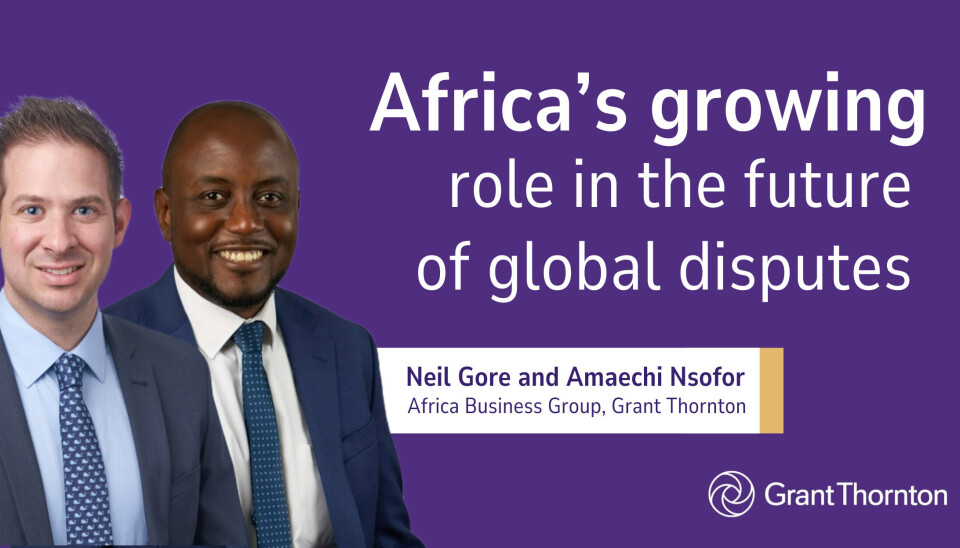Copyright : Re-publication of this article is authorised only in the following circumstances; the writer and Africa Legal are both recognised as the author and the website address www.africa-legal.com and original article link are back linked. Re-publication without both must be preauthorised by contacting editor@africa-legal.com
Africa’s growing role in the future of global dispute resolution

The 9th ICC Africa Conference on International Arbitration takes place in Nairobi this week. Neil Gore and Amaechi Nsofor discuss key challenges and trends as Africa’s role in global ADR evolves
The growing importance of Africa will be underlined this week as business professionals from across the globe, including insolvency, forensic and asset recovery experts from Grant Thornton, gather in Nairobi to build connections and gain valuable insights at the 9th ICC Africa Conference on International Arbitration.
“I’m looking forward to hearing about some of the latest developments in the market, the impact of technology, and to understand where things sit in relation to the Trump tariffs and how that’s affecting disputes work,” says Neil Gore, a born-and-bred Capetonian who is part of Grant Thornton’s Africa desk in London.
Gore, who has worked on some of southern Africa’s largest contentious insolvency matters, will be attending this week’s ICC Africa Conference on 28-30 May alongside colleagues including Parag Shah, Paul Cliff, and Angela Bilbow.
“I’m keen to hear about what people in our industry are finding most challenging at the moment in Africa. Are there ways the legal fraternity and other professional bodies that work with them can assist in navigating those challenges?”
This year's ICC Africa Conference on International Arbitration will focus on ‘Africa's Role in shaping the next era of Alternative Dispute Resolution’.
Shah, Head of Advisory at Grant Thorton, Kenya, is part of an expert panel – which also includes former ICC Court of Arbitration Vice-President Ndanga Kamau – on ‘Demystifying the damages assessment in international arbitration’.
Other panels and sessions will cover topics including arbitrating ESG-related claims in Africa, third party funding, positive steps towards increased integrity, AI in African Arbitrations, and Insights from the ICC Dispute Resolution Study.
Amaechi Nsofor, Head of Africa Business Group at Grant Thornton, is keen to hear what comes out of the ICC Conference in relation to the development of African-based Centres for International Arbitration and the volume of work they’re doing, and issues around the enforcement of arbitral awards in Africa.
“It’s one thing getting an arbitration award, it can be another to enforce it, and a lot of time and legal costs can be spent going through a process that may be difficult to monetise,” says Gore. “Where we can provide a lot of certainty or assistance is helping to understand the commerciality of embarking on a certain route to obtaining an award and enforcing it. Generally, not just in Africa, the processes and legal systems of arbitration can take time, wheels turn slowly.”
While AI has not really encroached into arbitration as much, yet, as it has impacted document hosting, e-discovery, and other legal and advisory matters, note Nsofor and Bilbow, it is coming up in relation to enforcement of awards.
“We are looking at supporting some of our member firms within Africa in terms of the kind of work they do and to drive for that,” says Nsofor. “Most of them are asking for tools, they’re asking for AI. They’re asking for ways to work smarter.”
Ahead of her attendance at this week’s events in Nairobi, Bilbow emphasises the importance of Africa in general, and to Grant Thornton. “I’m currently driving a global strategy for arbitration, which is focused on and involves our leadership in key arbitration hubs. Africa is paramount to that global strategy.”
